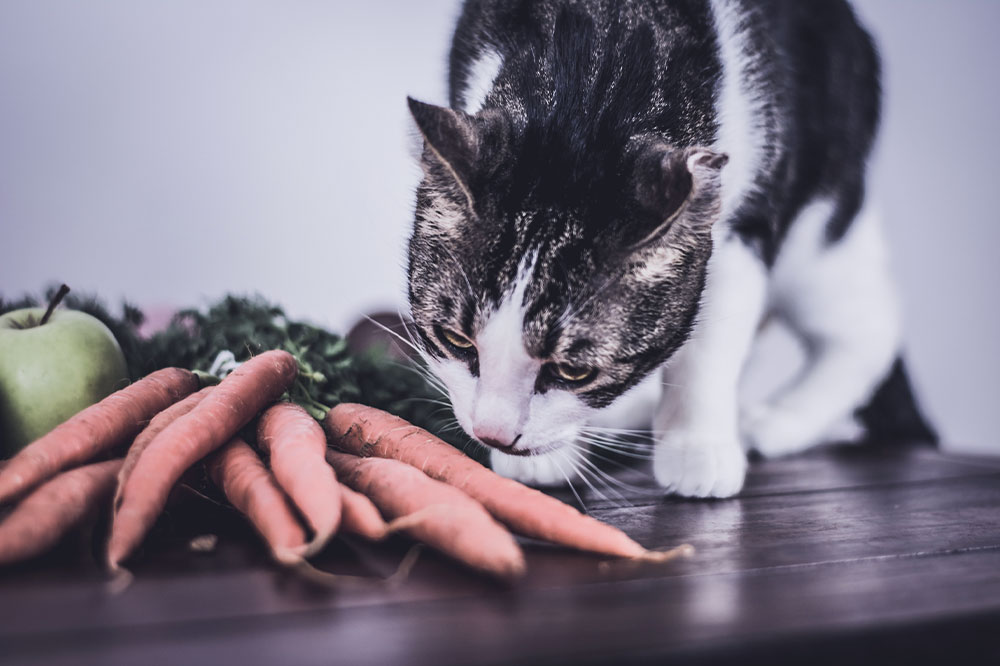
7 human foods that are safe for cats
Cats make excellent pets. But, they can also be fussy when it comes to food. The argument between the two of you might even hold the potential of turning hostile if the four-legged creature does not get its way. However, that cannot be motivation enough to let your kitty steal food off your plate. That said, there are some foods that you can treat without worrying about the safety aspect of it all.
Meat
Meat is one of the tastiest and safest human foods cats can enjoy. Since cats need proteins in abundant quantities, meat is a great addition to their home-cooked meals. Beef or poultry does not matter much as long as it is not loaded with sodium. Excess salt in your feline’s food can lead to toxicity and needs to be avoided.
Cheese
If there is something we have all learned from binging cartoons is that cats love cheese. It is one of the human foods that are also safe for them. Cheese can be used as a treat or snack as it is rich in calcium and protein. However, abstain from growing lenient about the amount of cheese your cat nibbles on, as excessive dairy can cause complications like diarrhea.
Bananas
We are all aware of the many benefits of this fruit. It is rich in potassium and can be a great source of electrolyte balance in the body. It is a great snack option to entice your cat every once in a while. But since they are high in calories, ensure that it is seldom served, or it can contribute to the risk of diabetes and other related complications.
Carrots
Your cat may have been eyeing the bunch of carrots you placed on the kitchen counter during meal prep. If that is the case, do not shy away from treating your feline friend to some juicy and crunchy vegetable. If unsure about their chewing ability, serve them with cooked carrots to ensure they won’t choke on a chunk.
Melons
Your cat probably wants a piece of the melon you are helping yourself to. If that is the case, you do not need to worry about your pet’s safety before sharing the juicy bits of fruit off your plate. But before you do, check to see that there aren’t any seeds that could inadvertently lead your cat to a choking incident.
Spinach
If you have any houseplants or a garden, you must have noticed your kitty occasionally nibbling on the plants while playing with them. It is possible that your cat or kitten likes the texture of the green leaf. Instead of letting it go on without being sure about how safe that plant is, it is advisable to serve your pet with some spinach leaves.
Eggs
Eggs are one of the most balanced meals you can add to your or your cat’s plate without worry. All you need to do is ensure the egg is fully cooked.
Of course, you don’t always have to depend on home-cooked meals for your pets. Store-bought packaged foods might be more nutritionally balanced for your cat.
Hill’s
Hill’s Cat Foods has been a prominent fixture in cat food. It produces food that provides energy and nutrients and equips your cat to fight off infections and health issues.
Iams
IAMS manufactures food made from healthy ingredients that are safe for pets. You can get your hands on snacks, treats, supplements, and wet and dry cat food, all in the same place.
Sheba
Sheba offers your cat some variety in their meals while keeping them balanced and nutritionally rich.
9Lives
If you are looking for decent cat food options for your feline furries, then the 9Lives cat food is an inexpensive purchase you want to indulge in.
Purina
Purina is known for providing pets with tasty and nutritionally dense food options. You can browse through their wide range to select a healthy and suitable option for your kitten or cat.
Some foods and natural remedies also help protect cats from external parasites like fleas and ticks and relieve discomfort caused by these pests. For example, applying lemon spray on their coat can keep fleas at bay. You can squeeze lemons into boiled water and let the solution sit for a few hours before using it on pets. Additionally, coconut oil can help relieve itching, whereas aloe vera, apple cider vinegar, cedar, and oregano oil can repel fleas.


